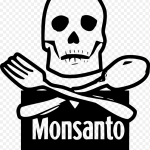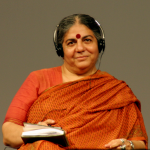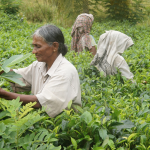Sri Lanka's ban on imported synthetic fertilizers and pesticides devastated the country's farm sector, causing mass food shortages that helped drive the president out of office—and out of the country. ACSH director of bio-sciences Cameron English appeared on the Lars Larson show to explain the situation in more detail.
organic
Rep. Alexandria Ocasio-Cortez recently came out in support of "regenerative" farming as a solution to climate change. There is little evidence to justify her advocacy.
Anti-pesticide activist Carey Gillam recently moderated a panel discussion about the weed killer glyphosate. I attended and took notes. Here's what I saw.
Anti-GMO, anti-pesticide groups have tried to distance themselves from the political instability in Sri Lanka, fueled in large part by the disastrous organic-farming policies they told the country to pursue.
Whole Foods Magazine recently published a story alleging that there is no evidence vindicating the safety of "GMOs." How well does this claim stand up to scrutiny?
Should organic farmers grow gene-edited crops? A leading figure in the agroecology movement says "yes"—and so does the generation of environmentalists following in his footsteps.
Sri Lanka ran a cruel experiment on its population last year by trying to mandate all-organic food production. The results are in, and they're tragic.
The USDA's "bioengineered" (GMO) food label is expensive and pointless, facts widely disseminated by the science community. The media has been critical of the new labeling regulations as well, though for the wrong reasons. Here's a textbook example from NBC News.
Scientific American's descent from respected publication to ideological tabloid is nearly complete. The magazine is now promoting anti-GMO activism under the guise of "social justice."
The evidence consistently shows that organic farming cannot help the world slow climate change. Yet science publications that should know better continue to promote this harmful myth.
The anti-GMO movement is gradually campaigning itself into irrelevance. Unfortunately, this positive trend has been slowed by public universities that pay activists exorbitant speaking fees to promote their questionable ideas. This is but one example of taxpayers subsidizing ideological advocacy with potentially serious consequences.
Earlier this year, Sri Lanka banned imports of synthetic pesticides and fertilizers, part of its effort to embrace organic-only farming. The project has left farmers without access to vital tools and sent food prices soaring.











